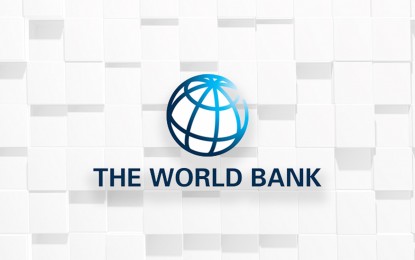
MANILA – The World Bank's Board of Executive Directors has approved the 268.22 million-euro (USD287.24 million) funding for the Philippines Digital Infrastructure Project.
In a statement on Friday, the World Bank said the project which is expected to benefit 20 million Filipinos, aims to improve climate-resilient, secure, and inclusive broadband connectivity across the country.
The project will invest in the government's national fiber optic backbone, middle-mile, and last-mile connectivity infrastructure, while ensuring these facilities are secure against cybersecurity threats and climate risks.
The national fiber optic backbone refers to a network of high-capacity fiber optic cables that interconnect different regions of the country.
This network serves as the principal data highway for intra-country communications, carrying large amounts of data at high speeds.
The international lender said the Digital Infrastructure Project will complete the remaining parts of the national fiber backbone, connecting the two main international landing stations in Baler (Luzon) and Davao City (Mindanao).
"A robust broadband connectivity infrastructure is not just a technological necessity; it's an essential cornerstone for the Philippines to boost growth and attain its goal of becoming an Upper Middle-Income Country in the next couple of years,” said World Bank Vice President for East and Pacific Manuela Ferrero.
“Bringing greater internet access to the grassroots can bridge the digital divide, empower communities, and unlock the full potential of the digital economy," Ferrero added.
The World Bank said the project will also be used for investments in the middle-mile infrastructure that will extend connectivity from the main backbone to more localized underserved areas in the regions of Western Visayas, Central Visayas, Easter Visayas, Zamboanga Peninsula, Northern Mindanao, Davao Region, Soccsksargen, and Caraga.
This includes the installation of underground fiber optic cables, which promise to make the network more resilient against disruptions from climate and extreme weather events.
The project will, likewise, create infrastructure foundations that will connect public institutions, schools, and hospitals in Eastern Mindanao, along with free Wi-Fi access points in these facilities.
"Improved internet access will help all Filipinos, especially those in remote areas of Mindanao, gain better education, healthcare, social protection, and government services," said World Bank Country Director for the Philippines, Malaysia, and Brunei Darussalam Zafer Mustafaoğlu.
"This project fosters a brighter future for lagging regions by connecting everyone and ensuring that the poorest and most vulnerable Filipinos can benefit from the power of technology," Mustafaoğlu added.
To ensure resilience of these investments, the project will incorporate climate data, risks, and resilience measures into the design of the infrastructure.
These include using climate-resilient materials and conduit systems for underground cables, designing overground infrastructure to withstand strong winds and floods, and incorporating innovative engineering solutions to adapt to climate-related risks, among others.
It will also deploy advanced intrusion detection and prevention systems, implement next-generation firewalls, multi-factor authentication for broadband infrastructure access, comprehensive encryption protocols, regular updates to address Wi-Fi vulnerabilities, and provisions against the dual vulnerabilities of natural disasters and cyberthreats. (PNA)
